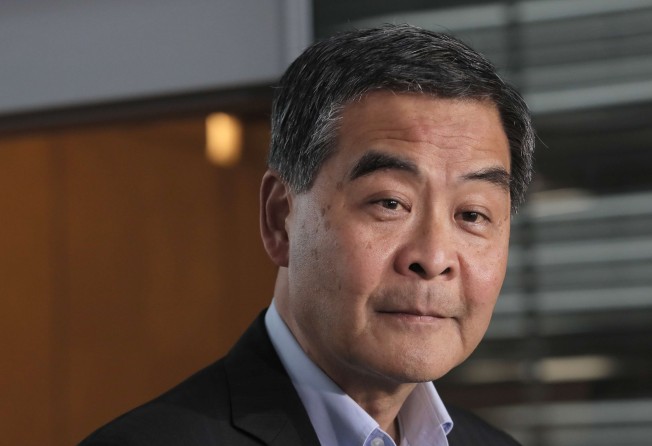More respect, but no immunity: what CY Leung can expect from new job on China’s top advisory body
Key questions answered about Hong Kong chief executive’s appointment as vice-chairman of Chinese People’s Political Consultative Conference

Hong Kong leader Leung Chun-ying was elected vice-chairman of China’s top advisory body on Monday, becoming the first chief executive to hold the two roles simultaneously. The move is seen as an acknowledgement of his efforts to curb pro-independence forces in Hong Kong as the city’s top official. Leung had announced in December that he would not seek another term as chief executive, citing family reasons.
How did Leung get the job?
A vice-chairman needs to first secure majority support from the Standing Committee of the Chinese People’s Political Consultative Conference (CPPCC) to be nominated as a candidate before being voted in by more than 2,000 CPPCC delegates.
Last Friday, 294 members of the standing committee voted in favour of a motion to nominate Leung, with two abstaining. A total of 2066 delegates voted to support his promotion on Monday.
What do CPCC vice-chairmen actually do?
A CPPCC vice-chairman helps the chairman carry out his work, participates in meetings among the body’s chairman and vice-chairmen and deals with key matters before the body’s standing committee.
What are the perks and privileges?
These are largely nominal, but Leung will be offered free security guards of a sub-state level and might be received with more respect when abroad. He will also receive a monthly salary of about HK$12,000.
As CPPCC vice-chairman, is Leung immune from investigation or prosecution by an anti-graft watchdog?
The question has crossed the minds of many from Beijing to Hong Kong. Leung’s dealings with Australian firm UGL could lead to a criminal case against the chief executive. Between 2012 and 2013, Leung received HK$50 million from a deal between his former company DTZ and UGL.
And the answer to the question is a resounding no, if the experience of former CPPCC vice-chairman Su Rong is any indication.
A year after his appointment to the senior leadership position in March 2013, Su was probed for bribery. In January this year, he received life imprisonment for taking bribes upwards of 116 million yuan (HK$130 million).
Will new role clash with his chief executive duties?
CPPCC delegates, including Professor Arthur Li Kwok-cheung, have said Leung’s new role will not clash with that of the chief executive as the CPPCC is only an advisory body. But the pan-democrats have argued there will be a conflict of interests as the chief executive under the “one country, two systems” principle should not be a state leader at the same time.
How many CPPCC vice-chairmen are there?
Twenty-one in total, including former chief executive Tung Chee-wah and ex-Macau chief executive Edmund Ho Hau-wah. Both Tung and Ho were appointed as the top advisory body’s vice-chairmen after they stepped down as chief executive.
The body’s current chairman is Yu Zhengsheng, who is also a member of the Politburo Standing Committee – Beijing’s highest decision-making body.